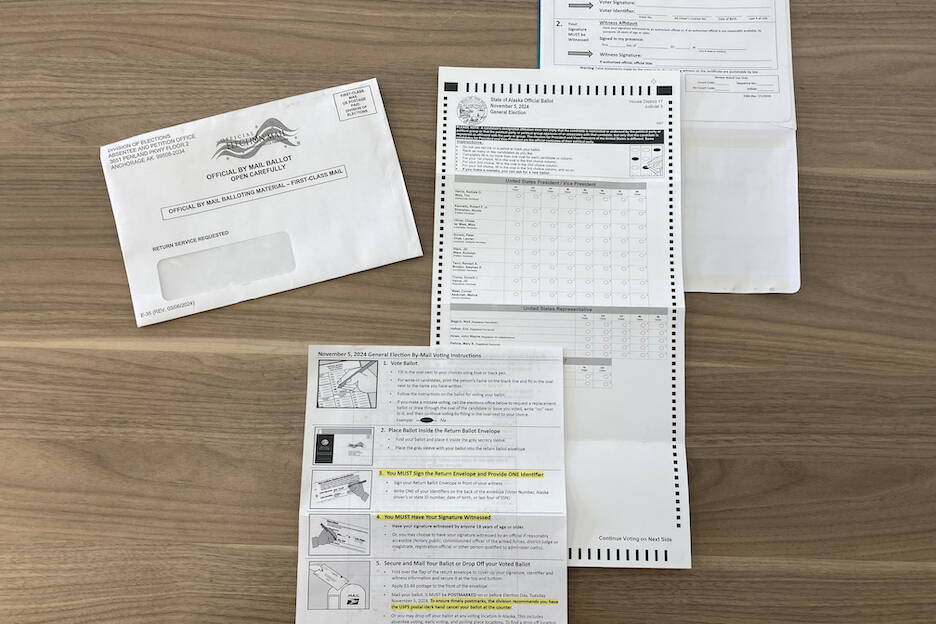Early voting locations opened Monday across Alaska for registered voters to cast ballots in the Nov. 5 general election. The lone exception was in Fairbanks, where bad weather kept the early voting station from opening as scheduled.
Statistics for votes cast on Monday weren’t immediately available, but absentee ballot figures through Friday show disproportionately high participation among registered Democrats and slightly lower — but still disproportionately high — participation among registered Republicans.
As of Oct. 19, 56,607 voters had requested absentee ballots — a little over 9% of all registered voters in the state.
In Alaska, any voter can vote absentee, but someone who wants to receive a blank ballot in the mail must request it — ballots aren’t sent automatically.
In 2020, amid the COVID-19 pandemic emergency, many voters chose to vote by mail, and the absentee participation rate is much lower this year than it was in the last presidential election.
Among the voters requesting ballots are 12,658 registered Democrats — a bit over 17% of all Democrats registered in the state.
By comparison, 16,609 Republicans had requested absentee ballots, but because there are many more registered Republicans in the state, that’s only a bit over 11% of all Alaska Republicans.
There could be many reasons for that difference. Republicans may be less willing to vote absentee this year, or Democrats may be unusually enthusiastic about the election, for example.
Through Friday, 6,736 absentee voters had already returned their ballots to the Division of Elections, including seven people whose ballots were received way back on Sept. 23, making them Alaska’s first voters.
Almost 26% of the returned ballots were from registered Democrats, even though Democrats make up barely more than 12% of the state’s registered voters.
A bit over 28% of the returned ballots were from registered Republicans. Registered Republicans make up about 24% of the state’s registered voters.
It’s too early to tell whether that super-early turnout is a sign of a larger trend. The earliest voters are likely to be the most enthusiastic and probably aren’t representative of the whole state.
Four years ago, 361,400 voters participated in Alaska’s election, and if the state were to see that turnout again, the ballots cast through Friday would represent less than 2% of the total.
Voters can request mailed absentee ballots through Friday, and voters who want to download a blank ballot can do so right up until the day before Election Day.
Regardless of when they’re returned, absentee ballots won’t be counted until after Election Day and won’t be added to the official tally until later.
Votes cast at early voting stations through Halloween will be included in the Election Day tally; votes from Nov. 1 onward will be tallied after Election Day.
• James Brooks is a longtime Alaska reporter, having previously worked at the Anchorage Daily News, Juneau Empire, Kodiak Mirror and Fairbanks Daily News-Miner. This article originally appeared online at alaskabeacon.com. Alaska Beacon, an affiliate of States Newsroom, is an independent, nonpartisan news organization focused on connecting Alaskans to their state government.

